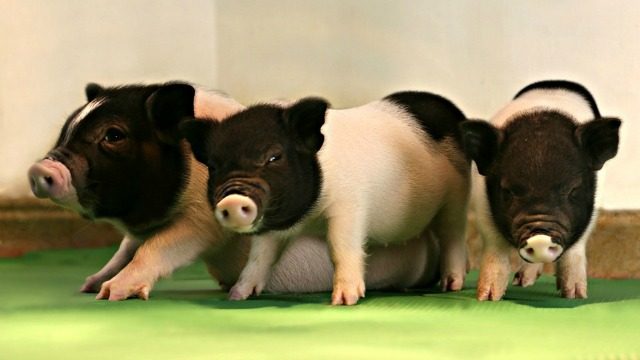MI weekly selection #245

CRISPR edits genes in pigs to make organs safer for transplants
Researchers have inactivated porcine endogenous retroviruses using CRISPR-Cas9, paving the way for potentially safer pig-to-human transplants. After 25 retroviruses were edited out of the pig DNA, the genetic material was added to pig eggs, which were implanted in sows who gave birth to piglets with the edited cells.
Little frogs hitch rides on water buffaloes for fly feast
Tiny marsh frogs in Turkey hitch rides on water buffaloes, a rare example of a symbiotic relationship between amphibians and mammals. The frogs congregate on the buffaloes’ backs from April to November to eat flies that swarm their furry companions.
Recognition of familiar faces activates 2 brain regions in primates
Two specific brain areas help primates such as rhesus monkeys recognize familiar faces. During fMRI scans, two regions of the anterior temporal lobe showed more activity when monkeys were shown a photograph of a familiar individual than when they looked at a photo of a stranger’s face.
Timing of flooding events in Europe affected by climate change
The timing of river floods in Europe has been altered by climate change. Some areas are experiencing flooding up to 15 days earlier than what occurred 50 years ago, while flooding starts as many as eight days later in other areas.
Proxima b study considered for James Webb Space Telescope
Researchers are hoping to get a much better look at Proxima Centauri b, the nearest exoplanet so far identified, when the James Webb Space Telescope launches next year. The Proxima b study is just one of many that NASA is considering for its powerful new space telescope, which is the largest ever built.